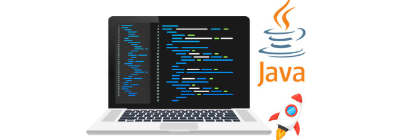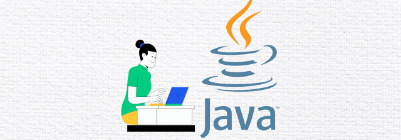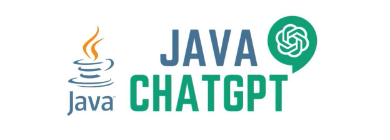Have high hopes from GST cut on health, life insurance? Here's why a drastic fall is unlikely to benefit policyholders
There has been growing clamour for removing or lowering the current GST rate of 18% on life and health insurance policies. After union minister Nitin Gadkari raised this issue, the people started hoping for the rate cut to become a reality as it was taken for consideration by the GST council. However, despite several meetings in the past the GST council is yet to take a final call on this issue. The issue is likely to be taken up again in the next GST council meeting on December 21. However, the question remains how likely a reduction is and whether it will really benefit the policyholders.Government gets a significant revenue from GST on insurance policies. The government has answered in Lok Sabha that more than Rs 16,000 crores was collected by levying Goods and Services Tax (GST) on health and life insurance policies issued through FY 2023-24. It will not be an easy decision to forego such a big source of revenue. Considering this new information and also the public demand for lower GST rates on health and life insurance, a significant rate cut appears a challenging task for government.
Moreover, insurance companies are facing a challenge if such a reduction will actually help them in lowering their costs. They want assurances from the government that if the GST rate is lowered, the companies would still be able to claim input tax credit on the insurance policies sold. If the government does not assure this then it will add a cost component for them which is going to increase insurance premiums instead of decreasing.
Read below to find out possible solutions to these challenges where all three- insurance companies, general public and the government may agree upon and ultimately consumers can hope to enjoy a lower GST on insurance.
How a drastic reduction of GST rate from 18% to 5% can make the insurance premiums go up instead of down
The reason is that usually products (with few exceptions) where the GST rate is 5%, on these products companies can't claim input tax credit. Input tax credit (ITC) is a mechanism where companies reduce their output tax liability by adjusting it with ITC. Think of this as if you pay TDS and then adjust the TDS with your total income tax liability at the time of ITR filing.
"The cost component for insurance companies is 6 to 8% which is why we need the input tax credit so that we can offset this with the 18% GST collected from the customer at present," said an official of an insurance company on the condition of anonymity.
Kedar Patki, CFO, IndiaFirst Life Insurance says: "The current 18% GST on insurance products is applied on the insurance service component of the contract excluding investment portion. It presents an opportunity for reform. If the government reduces the GST rate to 12%, it would be a win-win for all stakeholders. However, reducing the rate to 5% without permitting input tax credit could create challenges.
Currently, insurance companies collect 18% GST. The input tax credit reduces the net tax liability, thus helping in reducing input cost. If GST is removed or reduced to 5% without input tax credit, insurance companies would incur additional costs. The absence of input tax credit would lead to an increase in cost of input goods and services and would ultimately get factored in pricing to customers, thereby defeating the purpose of GST rate reduction.
To balance the interests of all parties, we recommend that the government considers a 12% GST rate with continued input tax credit in original form or a 5% rate with full input tax credit."
The challenge with 5% GST rate on insurance
Various experts with whom ET Wealth Online spoke agreed that, to give the consumer benefit of lower insurance premium, GST on insurance if it is lowered to 5% then the government should allow input tax credit (ITC) on it. Otherwise, the next best alternative is a 12% GST rate on insurance which will allow insurers to get full benefit of ITC.Samir Shah, Executive Director & CFO, HDFC ERGO General Insurance Company: "For passing of the entire benefit of reduction in GST on the health insurance policies to the customers, the reduction in GST rate should necessarily be accompanied with the continuing eligibility of input tax credit of GST on inward services consumed. For example, today if the base premium of a health insurance policy is Rs 100, the customer incurs a cost of Rs 118, including GST of Rs 18. In the present scenario, the insurers are eligible to avail input tax credit of GST on inward services consumed (against this Rs 18 in example given). If there is a reduction in the GST rate to say 5% and availability of input tax credit (against this 5% GST transaction) is also protected, insurers will be able to pass on the benefit of such a GST rate reduction to the policyholders."
Nilesh Kambli, CFO, Star Health and Allied Insurance: "Regulatory changes in input tax credit mechanisms can have a cascading effect on insurance pricing, ultimately impacting consumer affordability. Insurers determine premium pricing based on various costs, such as claims, intermediary and operational expenses. Any restrictions on Input Tax Credit (ITC) on these costs will significantly impact on their pricing structure. Blocking ITC on intermediary services and operational expenses increases the cost burden on insurers, potentially making health insurance less accessible to a broader population.
To mitigate this burden and ensure competitive premium rates, it is crucial that insurers are allowed to avail the full ITC on these costs. This would optimize the supply chain and help prevent unnecessary price hikes in insurance premiums."
Gaurav Parasrampuria, Chief Financial Officer, Magma HDI General Insurance: During the service tax regime, insurers could not claim input tax credit, however things changed when GST came into force, as it allowed input tax credit to be claimed on insurance policies sold. "Health insurance penetration in India is still low. If the GST burden on the health premium is reduced, then health insurance premiums will become more affordable and help improve penetration. In the past, when the industry had moved to the GST regime in 2017, the industry passed on the full benefit of the GST's input tax credit. For example, on materials used in motor repairs insurers increased the discounts on motor own damage premium."
Why Government is unlikely to completely exempt GST on health and life insurance
ET Wealth Online has asked various experts about the possibility of nil GST rate on insurance and here's what they said:The challenge with nil GST rate
Chartered Accountant Mandar Telang, Secretary - Bombay Chartered Accountants' Society (BCAS): The elimination of GST on health and Life insurance would only mean the government will lose tax only on the 'value added portion' that the insurance companies are providing. So effectively, the Government will lose only tax on margins earned by Insurance Companies. The share of such margin may not be so significant to make the elimination of GST fiscally infeasible.
Shashank Shekhar, Partner, DMD Advocates: Considering the buoyancy in GST collection and the fact that part of the loss of more than Rs 16,000 crore GST revenue will be funded by insurance companies due to loss of ITC, fiscally it may not be a very tall order. However, exempting the insurance sector may be more of a political than a fiscal decision. This is more so because of several insurance schemes both under the general and life insurance sector being exempt for marginalized populations. Therefore, it is more of a political than a fiscal decision.
Nishant Shah, Partner, Economic Laws Practice (ELP): The current Government's larger philosophy has been to grant benefits in the nature of tax exemptions in relation to necessities. In line therewith, there are currently exemptions to insurance schemes for the benefit of farmers, low-income individuals etc. We therefore believe that there are lesser chances of the Government completely eliminating GST on health and life insurance. In fact, the Government has only recently introduced GST on hospital room charges above Rs 5,000 per night, again emphasizing the philosophy of whether such a medical facility is a necessity.
Faranaaz G. Karbhari, Counsel, HSA Advocates: Should the Government decide, with reference to health and life insurance, to forgo GST completely, or charge a rate of GST 5% with no input tax credit (ITC), then it will likely result in ITC loss for insurance companies, thereby increasing their operational costs. In such a scenario, insurance companies will not have the liberty the claim ITC on the outward supply of insurance policies, forcing them to solely bear such additional costs. In order to offset such an increased burden, insurance companies may decide to charge higher prices for the outward supply of policies to the consumers, thereby indirectly increasing the burden on the consumers.
Shravan Shetty, Managing Director, Primus Partners: There is an expectation of a GST rate cut, but it is a decision that the GST council will have to take. Given the past record collection in GST and key elections done now might be the right time to take this decision of rate cut. We believe there could be a marginal increase in basic costs but for the retail customer, but there will be a net reduction in policy cost. The cost will, however, go up for corporates using the GST input credit.
Can 12% GST solve the problem of the high rate of GST on insurance?
The insurance experts and lawyers with whom ET Wealth Online spoke agree that without input tax credit the possibility of reduction in insurance premium is almost nil. Among the available options, the best one could be 12% GST with input tax credit. In this option the insurance premium will go down, insurance companies will be able to offset their output tax liability with input tax credit and the government will make a populist move. However government revenue will take a hit in this option, which in any case will get hit if GST is lowered from 18% to any rate.Patki from India First insurance says, "To balance the interests of all parties, we recommend that the government considers a 12% GST rate with continued input tax credit in original form or a 5% rate with full input tax credit."
Shah of HDFC Ergo agreed with Patki and emphasized that input tax credit mechanism must be protected and allowed whatever the rate.
Shah of economic law shares another possible solution to this problem, "While even currently certain policies issued by the insurance companies are exempted from GST, they do become eligible for GST input tax credit in relation to inputs required for other taxable policies. Should there be a complete exemption on all health and insurance companies, there could arise an increase in cost due to non-availability of GST input tax credit in the hands of the insurance companies. This in turn would require a grant of select exemption to suppliers of services consumed by such insurance companies to mitigate the overall increase in cost in the industry on account of non-availability of GST input tax credit."
Shilpa Arora, Co-founder & COO, Insurance Samadhan says: Health and life insurance play a vital role in ensuring financial security for citizens. However, eliminating GST on insurance premiums entirely needs careful consideration, as over Rs 16,000 crore was collected through GST on insurance in FY2023, funding critical welfare and development programs. Instead of complete elimination, we can explore lower GST rates of 5% for Individual Health Products and Term Insurance (Life) and all other products can be charged at 12%."
Why can't input tax credit be claimed on all goods and services with a 5% rate?
GST at 5% is charged on a few products and services at present and in most cases input tax credit can't be claimed on it. For example: restaurants and specific construction transactions. However, in the case of textile yarns which also attracts 5% GST, a registered GST buyer can claim input tax credit. "There is no blank ban on all items where 5% GST is levied. The restriction of claiming input tax credit on products at 5% GST is notified individually via notifications," says Ankit Jain, Partner, Ved Jain & Associates.
According to Faranaaz G. Karbhari, Counsel, HSA Advocates, there is no specific mention in the GST or any law which states that no input tax credit can be claimed if GST on products has been charged at 5%.
"However, it is pertinent to note that the Government has previously issued notifications whereby it has been mentioned that input tax credit cannot be charged on the specific products or services mentioned in the notification, on which 5% GST is being charged. For instance, vide Notification No. 46/2017-Central Tax (Rate), dated 14th November 2017, issued by the Ministry of Finance, it has been notified that standalone restaurants can charge a concessional GST rate of 5%, provided that input tax credit charged on goods and services used in supplying the service has not been taken," says Karbhari.
Shah from Economic Laws Practice agrees with Jain and Karbhari and adds: "There is no standard rule under GST which restricts credit of ITC on inputs only because the output of the GST rate is 5%. However, as per the rate notifications, certain restrictions have been incorporated in relation to availment of credit on input services and capital goods procured by businesses engaged in supply of goods and services which are chargeable at the GST rate of 5%."
Jain says: "The 18% GST rate on premiums adds a significant cost burden to policyholders, making insurance less affordable for large segments of the population. Life insurance services involve minimal service components, as the primary expense is claim payouts. Hence, life insurance should be fully exempt from GST. Health insurance provides critical coverage against medical emergencies. To enhance affordability, the GST rate should be reduced to 5%.
Several healthcare services are already exempt from GST, including, services provided by hospitals, clinics, and medical practitioners for diagnosis, treatment, or care of illnesses, Diagnostic tests and essential drugs. If GST on insurance is exempted, insurers will lose some input tax credit (ITC). However, the loss of ITC would likely have a marginal impact on insurers, as their core operational costs revolve around claim payouts rather than administrative overhead."
This story originally appeared on: India Times - Author:Faqs of Insurances























































